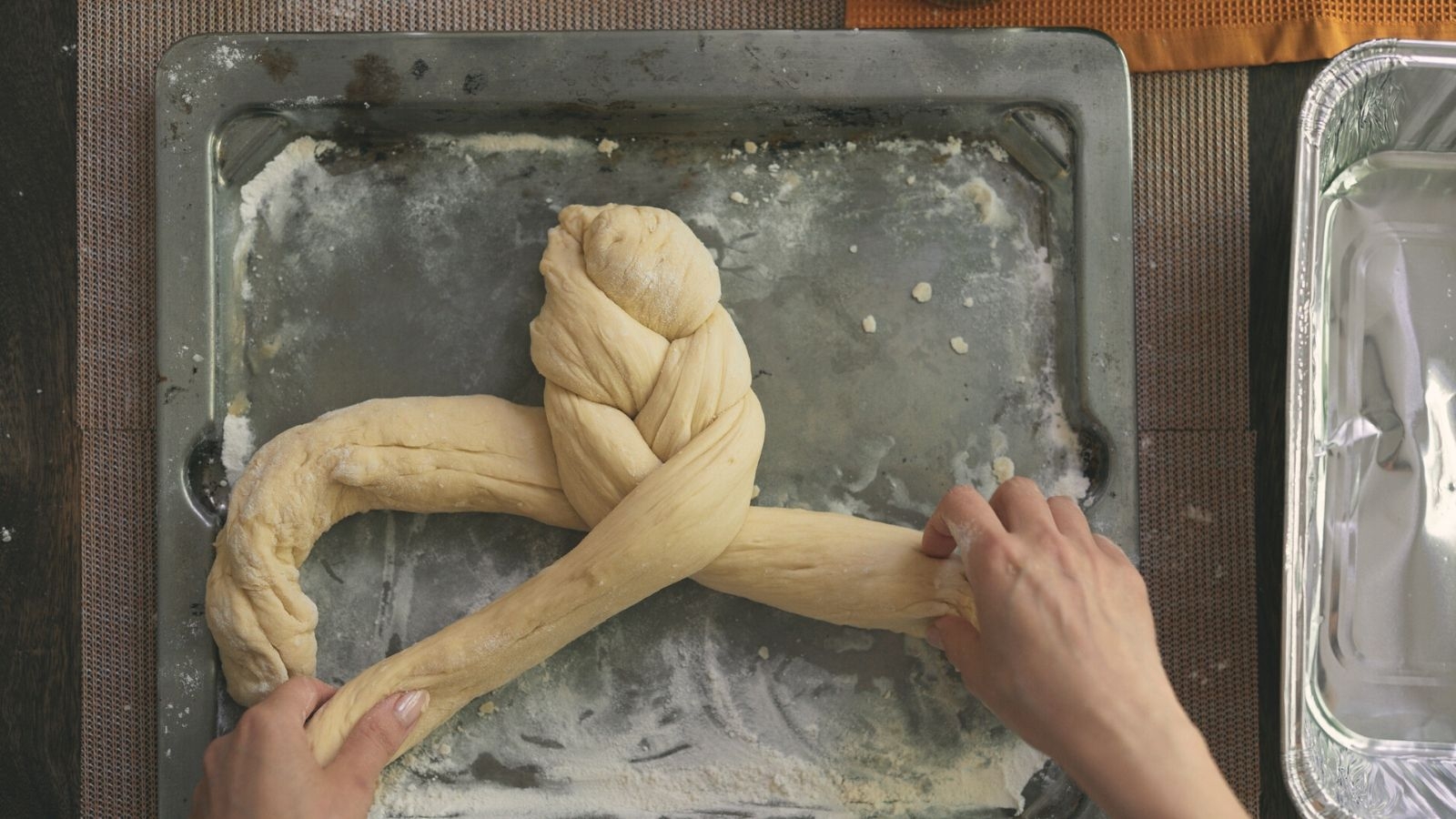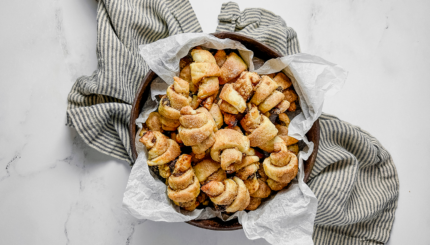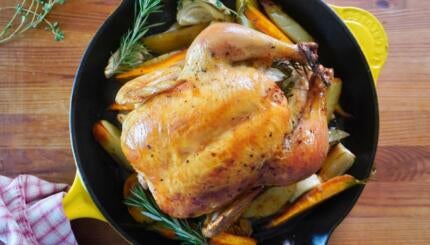I’ve always liked cooking, falling easily into the rhythm it provides, enamored with the controlled chaos of it. I like pans with leaping flames, dishes with heaps of herbs. To me, cooking is a statement that manifests in a myriad of personal ways: This is how I make a cookie — with too much salt, too much chocolate. This is how I roast a chicken — with extra lemon for piquancy and with schmaltz on the skin, because I can. A kitchen is a place in which you can take a stance, and for those who cook, cooking is both creative and assertive, a way of telling stories and a pronouncement of appetites. It has a duality to it: We cook for sustenance, and cooking, in return, sustains.
In its best iterations, cooking is about more than merely making food: It’s about tradition and history, a delicious form of storytelling. But now, more than for the taste, we’re cooking for the sense of stability it provides, for the way it helps delineate between the days, weeks, and months. We’re cooking because at a time when everything is uncertain, when time itself seems to have lost its meaning, cooking grounds us.
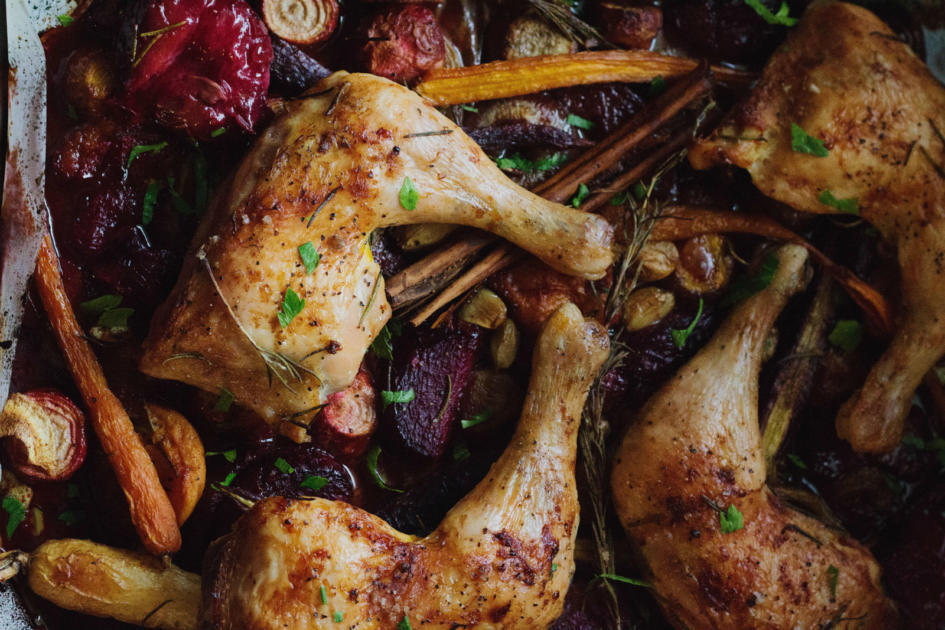
And nowhere is this more apparent than when cooking for Shabbat. Always somewhat of a hassle (all those dishes! All those harried Fridays!), now it feels settling: Shabbat is coming. Now, I can take my time and make homemade challah, punching down the dough and kneading it with za’atar. When I brush the braided loaves with egg and their scent fills the house, a deep calm settles through me. When the kugel, soft and brown-crisped, emerges from the oven, it marks the culmination of another week that has felt like one long day. It’s a reassuring reminder that time still has boundaries, that things still end and begin. The pot of chicken soup bubbling on the stove, brimming with plump matzah balls, is another reminder: that there are things to look forward to.
Shabbat, a culturally ingrained day devoted to resting and refueling, has always struck me as a marvel. In a hectic, modern society where being busy is glorified, the concept of a day devoted to rest is nothing short of miraculous. It’s the pinnacle of the week, a day of rest, food, and relaxation that lets us unwind from the week before and usher in the new week with clarity and rejuvenation. It feels like an act of self-care and never more so than now.
The Nosher celebrates the traditions and recipes that have brought Jews together for centuries. Donate today to keep The Nosher's stories and recipes accessible to all.
For many of us, quarantined and adjusting to a new reality, the future feels clouded with instability and anxiety. Cooking for Shabbat helps ground us in the week and gives us hope. It feels like a link: to what was, to what will be, to our friends, and to our families. I haven’t had a Shabbat meal with guests for a while, but when my own family sits down together at the Shabbat table, eating the food we’ve cooked together, the food we’ve cooked for years, we feel connected, joined to family and friends across the globe who are doing the same.
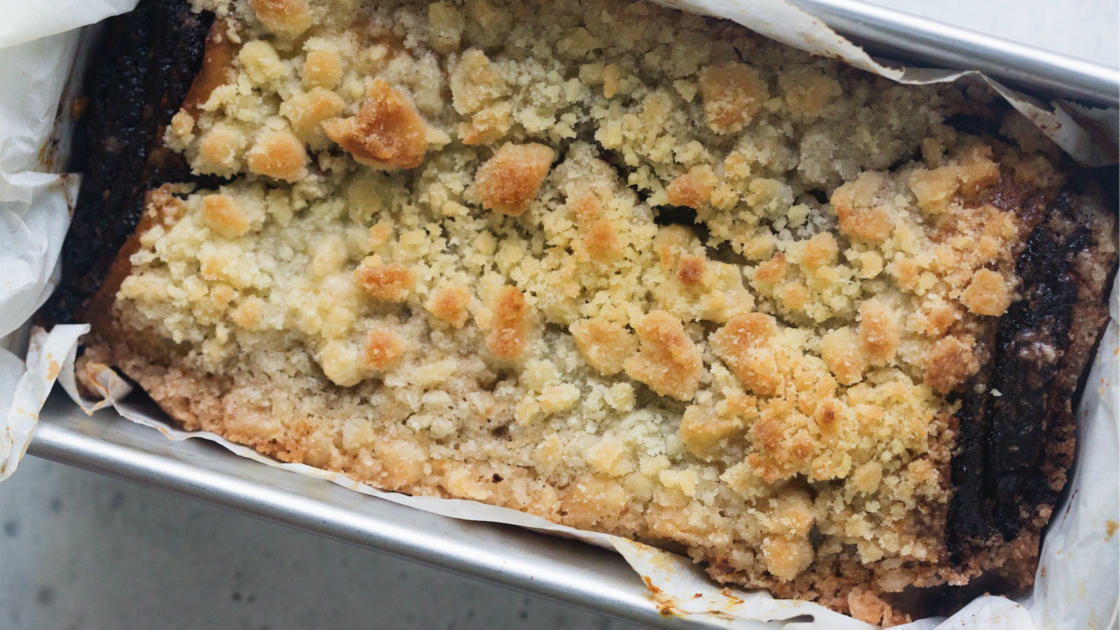
Cooking has always been about nourishing — both bodies and souls. Today, more than ever, it remains that. Still a statement, still a pronouncement of appetites, cooking in quarantine has become a way to connect and console. Baking a challah or braising a brisket for Shabbat, even when we don’t know what the next day holds, is a declaration: We’ll make it, and we’ll keep cooking through it.
You can find some of Chaya’s favorite recipes here.
